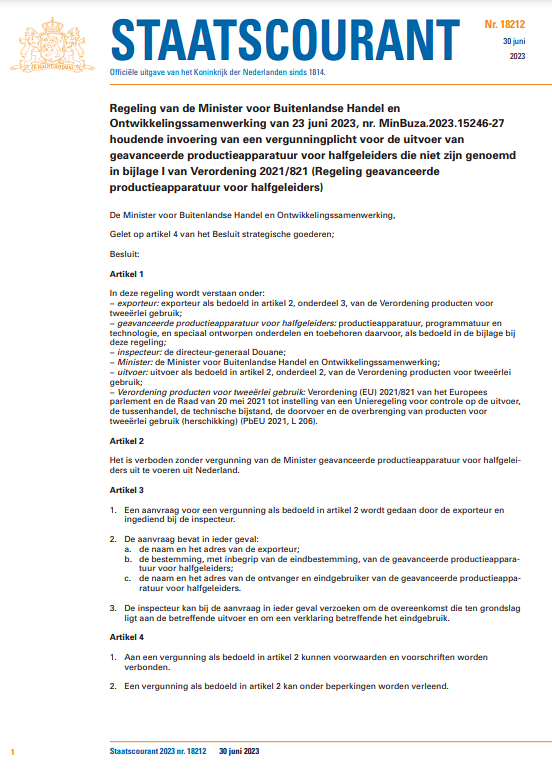On June 30, local time, the Dutch government officially promulgated new regulations on additional export controls for advanced semiconductor equipment. As stated in its announcement in March this year, these new export control regulations mainly target advanced chip manufacturing technologies, including advanced deposition equipment and immersion lithography systems.
It is reported that these regulations will come into effect on September 1, 2023. Therefore, lithography giant ASML can start submitting export license applications before this date, and the Dutch government will approve or reject these applications on a case-by-case basis.

After news of the Dutch government’s export restrictions came out, ASML immediately issued a statement on its official website, saying that the new regulations only involved some of the latest DUV models, including TWINSCAN NXT:2000i and subsequent immersion lithography systems. "EUV lithography systems have been restricted before, while shipments of other systems are not controlled by the Dutch government.
ASML emphasized in its statement that these new export control regulations target advanced chip manufacturing technologies, including state-of-the-art deposition equipment and immersion lithography systems, not all immersion DUV lithography systems.
According to ASML's official website, its immersion DUV lithography system includes three types of equipment: NXT:1980Di, TWINSCAN NXT:2000i and TWINSCAN NXT:2050i. They are capable of wafer processing in the 38nm-45nm process, of which two, 2000i and 2050i, are the products ASML refers to in its statement.
Those capable of processing wafers above 45nm, such as 65nm-220nm dry-type DUV lithography machines (TWINSCAN XT: 400L, XT: 1460K, NXT: 870, etc.) are not included in the Dutch control list.

